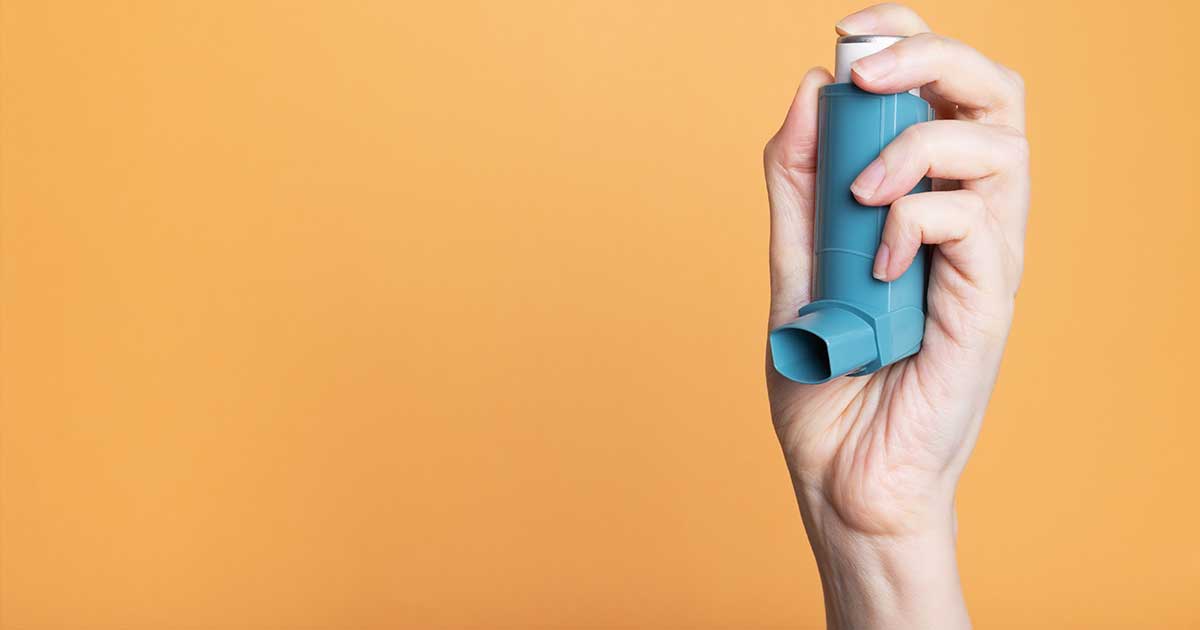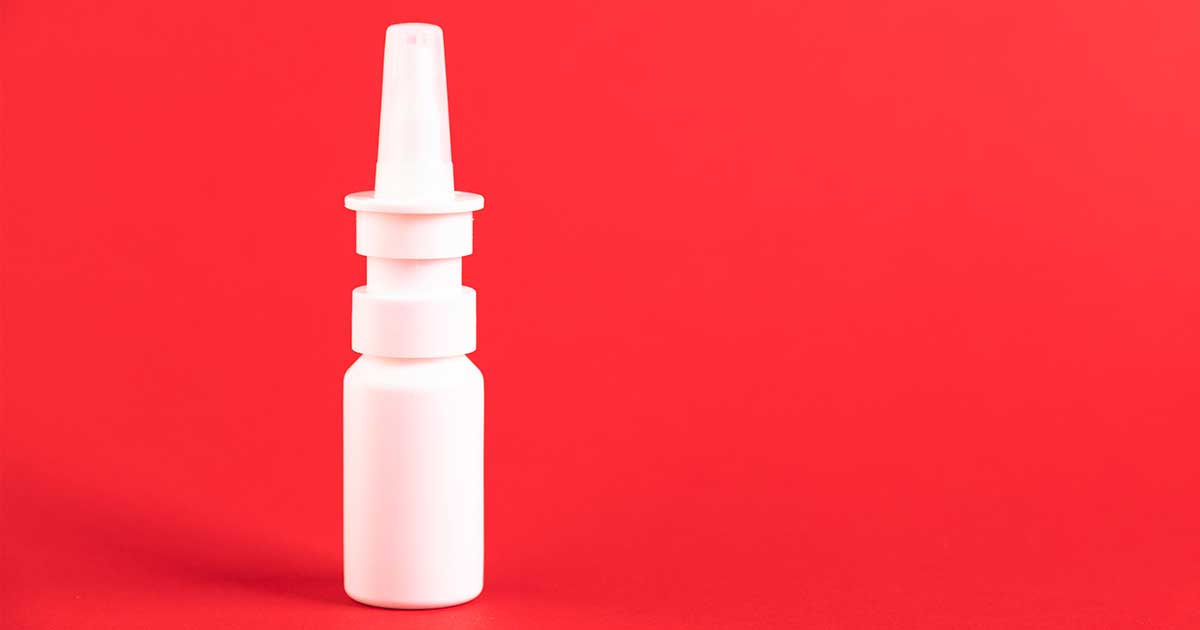Login to your account
- Prescription included
- Genuine medication
- All-inclusive service - No hidden fees
- Free next-day delivery
Understanding and managing the side effects of corticosteroids
Corticosteroids are strong medications used to treat a wide range of medical conditions. These include allergies, asthma flare-ups, blood disorders, skin conditions, inflammation, infections and more.
While they can be very effective, they also come with possible side effects. It's important to be aware of these potential risks to ensure you are safe when using the treatment.

Corticosteroids are available in various forms. Continue reading as we discuss the potential side effects you may encounter while taking these medicines.
What are the side effects of different types of corticosteroids?
Side effects may vary depending on the type of steroid medicine you use. They are also more likely to occur if you take high doses of the medication or take it for long periods.
Listed below are some possible side effects of different corticosteroid forms.
Oral corticosteroids
These steroids are most commonly available in tablet and liquid forms. They help to reduce swelling and inflammation and can also calm down your immune system. They are often prescribed to treat conditions like rheumatoid arthritis, asthma flare-ups, or inflammatory bowel diseases.

The side effects of this form are listed in the table below.
|
|
|
|
Inhaled corticosteroid side effects
Steroid inhalers are anti-inflammatory sprays or powders that you breathe in.
They're mainly prescribed by doctors to treat lung conditions such as asthma and chronic obstructive pulmonary disease (COPD).

If these inhalers are used correctly, or you use a low dose, there’s a low risk of side effects.
Some people may experience:
- a change in voice (hoarse or croaky voice)
- a different taste in their mouth
- a dry or sore mouth or throat
- a cough
- oral thrush (a fungal infection in the mouth) with symptoms such as a sore mouth or white patches on the tongue or back of the throat
Corticosteroid nasal spray side effects
These are medicines that you spray into your nose and are used to treat hay fever, inflamed sinuses or nasal polyps.

Steroid nasal sprays generally do not cause any troublesome side effects. However, potential side effects may include:
- burning, stinging, or dryness in the nose
- crusting of the nostrils
- a nose bleed
- a dry or irritated throat
- an unpleasant taste in the mouth
Topical corticosteroid side effects
Topical steroids are available in many different forms such as creams, ointments, lotions, gels, foams/mousses or solutions. They also come in a range of strengths from mild to very potent. You can purchase mild forms at a pharmacy without a prescription however, stronger products must be prescribed by a doctor.

They are used to treat common skin conditions such as eczema, dermatitis or psoriasis. When used correctly and for a short time, they are unlikely to cause serious side effects. Side effects are more common with strong forms, long-term use, or applying the product over a large area.
Common side effects include a burning or stinging sensation where the product is applied.
Less common side effects may include:
- worsening or spreading of a current skin infection
- skin thinning
- dry skin or wrinkling
- spider veins
- stretch marks (these may become permanent)
- contact dermatitis
- worsening of acne
- rosacea
- changes in skin colour
Corticosteroid injection side effects
Doctors use these injections to treat joint pain or inflammation in conditions such as arthritis, bursitis, and more. They are not the same as anabolic steroid injections, which are sometimes misused to increase muscle mass and improve athletic performance.

Injections can cause side effects similar to steroid tablets. These side effects may include increased hunger, mood swings, difficulty sleeping (insomnia), and elevated blood sugar or blood pressure.
Some people may also experience:
- pain and soreness (this is temporary)
- loss of skin colour at the injection site
- bruising at the injection site
- facial flushing
- changes to your vision such as blurred vision
- an infection, causing redness, swelling and pain
What are the short-term vs. long-term side effects?
Short-term side effects
Studies have shown that using corticosteroids temporarily can cause mild side effects. These may include high blood pressure and blood sugar levels, trouble sleeping, headaches, and nausea. On rare occasions, more serious side effects may occur during short courses of using the medicine.
Long-term side effects
Long-term use can lead to more serious side effects, including osteoporosis, GI problems (stomach ulcers), problems with eyesight, and skin thinning.
How can I manage the side effects??
Since these medicines are commonly used, it’s important to know how to manage any unpleasant side effects you may experience.
Tips to minimise specific side effects
| Side effects | How to manage it |
|---|---|
| Trouble sleeping | This is common with tablet forms. Take tablets in the morning or at least 3 hours before bedtime. |
| Headaches and feeling tired | These are quite common when you first start taking oral forms and usually go away with time. Try to rest to conserve your energy. |
| Increased appetite and weight gain | Follow a healthy, balanced diet to maintain your weight. Develop an eating schedule and stick to it. |
| A burning or stinging sensation when applying topical forms | This may happen when you first start applying the treatment. It usually improves as your skin gets used to it. However, if it continues to bother you, tell your doctor. |
| Oral thrush | This can be prevented by rinsing your mouth with water or brushing your teeth after using an inhaler. Your doctor can prescribe an antifungal treatment if you have oral thrush. |
| Burning, stinging or dryness in the nose with nasal sprays | Stop using the nasal spray for a few days, and then restart. Tell your doctor if these continue to bother you. |
| Raised blood sugar levels | If you have diabetes you may need to speak to your doctor about changing the dose of your diabetes medicine to control your blood sugar levels. If you are at risk of diabetes, your doctor will monitor your blood glucose levels regularly. |
| Stomach irritation | This is common with tablet forms. If possible, take your tablet with a meal. Also, avoid taking steroids together with non-steroidal anti-inflammatory drugs (NSAIDs), such as ibuprofen or aspirin. |
Some side effects are more severe than others. Get immediate medical attention if you experience any of the following symptoms:
- feeling depressed
- suicidal thoughts and severe mood swings
- an allergic reaction (symptoms include a swollen face, tongue or lips, or shortness of breath)
Are any groups of people more likely to experience side effects?
Use in children and adolescents
Research shows that inhaled corticosteroids reduce short-term growth in children and teenagers. Although, this does not seem to have a significant effect on your child’s eventual adult height. Doctors will usually monitor children’s height and weight whilst taking this medicine.
Use in women who are pregnant or breastfeeding
It is important to speak to your doctor before taking any medication during pregnancy or while breastfeeding.

There is limited evidence that corticosteroids result in an increased risk of children being born with abnormalities such as a cleft lip. However, there is research that suggests that taking corticosteroids for long periods or more often during pregnancy, may increase the risk of low birth weight infants and preterm birth.
Research shows that the levels of some corticosteroids in breast milk are very low. There have been no side effects reported in breastfed infants with patients using any corticosteroid.
When should I seek medical advice?
If you experience any troublesome side effects that don’t go away with time or any severe side effects, you should speak to your doctor. They may change your dose to reduce the risk of side effects of your steroid medication. Your doctor may also switch you to a different medication or suggest stopping treatment.
What treatments does euroClinix offer?
Always read the patient leaflet that comes with your order to learn about the side effects of your specific treatment.
Here at euroClinix, we offer the following products:
| Treatment name | Ingredient | Form | Used for |
|---|---|---|---|
| Locoid | Hydrocortisone butyrate | Cream, ointment or liquid preparations | Psoriasis, eczema, or dermatitis |
| Dermovate | Clobesatol propionate | Cream, ointment, scalp application | Inflammatory skin conditions including psoriasis, eczema, lichen planus |
| Elocon | Mometasone furoate | Cream, ointment, or scalp lotion | Mainly psoriasis and dermatitis |
| Betnovate | Betamethasone valerate | Cream, ointment, lotion and scalp application | Eczema, dermatitis, psoriasis, insect bites and more |
| Diprosalic | Betamethasone dipropionate + Salicylic acid | Ointment, scalp application | Eczema and psoriasis |
Select
medicationFill out a short
medical formDoctor issues
prescriptionMedication sent
from pharmacy
